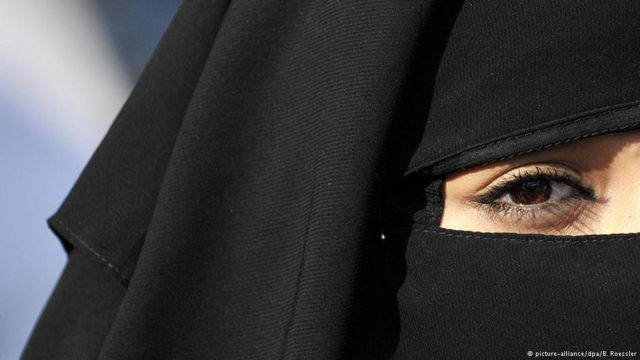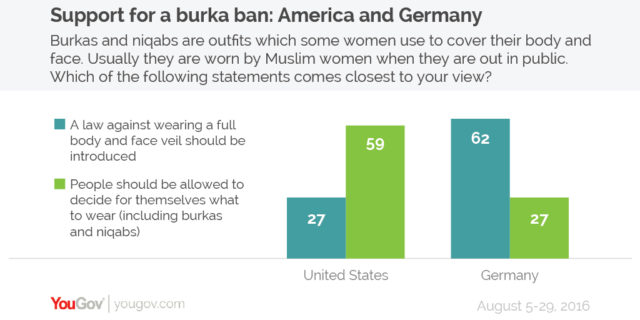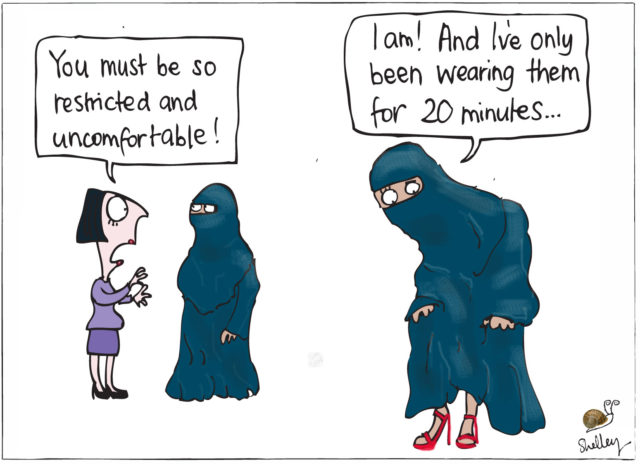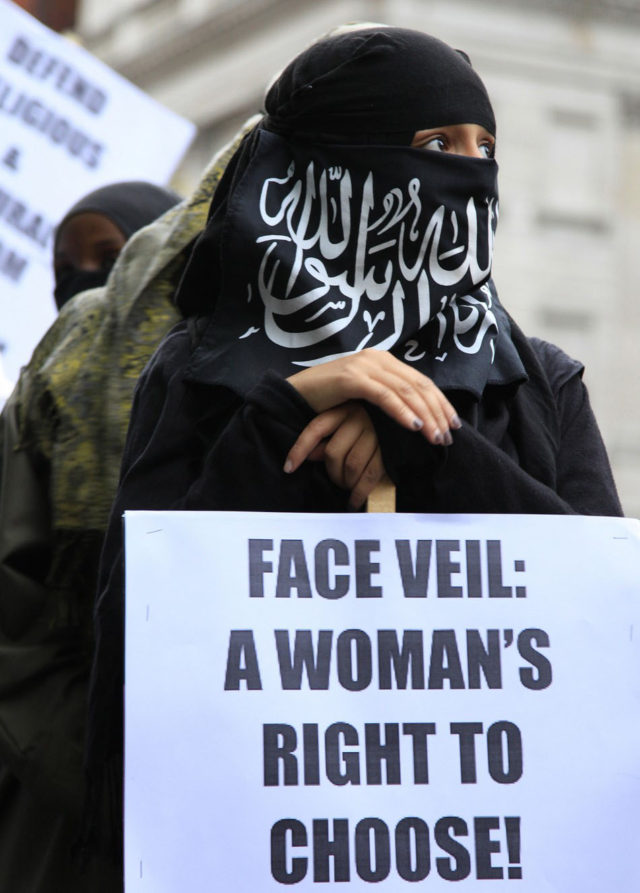At a convention for her Christian Democratic Union party, German Chancellor Angela Merkel declared her support of a partial ban on the burqa and the niqab in Germany, saying that “the full facial veil is inappropriate and should be banned wherever it is legally possible”. The party is expected to pass the motion this week.
It’s important to note that the proposed ban will be partial, only applicable in some areas of public life like courts, schools, universities, and during police checks. Other pieces of clothing such as motorbike helmets and balaclavas will also be covered under this.
It seems like more and more European countries are introducing such bans. Towards the end of November this year, Netherlands announced a partial ban on the full veil in hospitals, municipal institutions, schools and on transport. Belgium, Bulgaria, France, and the Swiss canton of Tessin already have similar prohibitive legislations.
This latest push to ban the garment is being linked to the rise of the Islamic State, with people asserting that the ban is necessary to protect public safety as criminals and terrorists can use face coverings to hide their identities. Sadly, this argument is nothing more than a way to exploit the frightened and encourage the intolerant.
Admittedly, it is fair to say that those who represent the state and are expected to be unbiased – police officers and judges, for example – do not wear symbols of religious or political allegiance. Also, civil servants who come in frequent contact with the general public should not have their faces covered, and police should have the power to request the removal of face coverings for security checks. All this is reasonable; but, that’s where the line should be drawn.
Females travelling by public transport and those attending school while wearing a burka pose no threat to public safety. In fact, the direct security threat posed by the full face veil is very low.
The other argument touted in support of the burka ban is liberation of women.
Of course, the status of women is an issue in most religious communities, and this needs to be discussed. Any regime forcing women to dress a certain way is definitely oppressive, but banning a piece of clothing isn’t a solution to this. In fact, those who are forced to cover their face by conservative family members will only end up being excluded from society as their oppressors force them to stay indoors.
Another relevant question needs to be addressed: is it still oppression if a woman chooses to wear the burqa of her own accord?
Women who choose to dress themselves in this way have been known to present a diversity of religious, political and personal arguments for doing so. Indeed, as a consequence of the Islamophobia that’s flourishing in Europe today, many Muslim women sport full veils as a means of protesting against intolerance. By banning the burqa, you would be impinging upon their freedom of expression.
Banning the burqa in European countries would affect only a small number of women, but would leave those few with very little choice. Obey the law and deny your faith, follow your faith and face criminal charges, or worse yet: stay at home and become isolated from the community.
Tolerance is a two-way street. Those who practice a particular religion need to be tolerant of people who deny their religious beliefs and even those who propagate other doctrines which might go against their religion. At the same time, those who do not practice a particular religion need to be respectful of the religious feelings of believers.
Angela Merkel is known for being one of the most tolerant German leaders. In 2015, she made the extremely controversial decision of allowing more Syrian and Afghani refugees into Germany than any other country. But after certain acts of violence in the country in 2016 that seemed to be tied to immigration, her policy has garnered massive criticism.
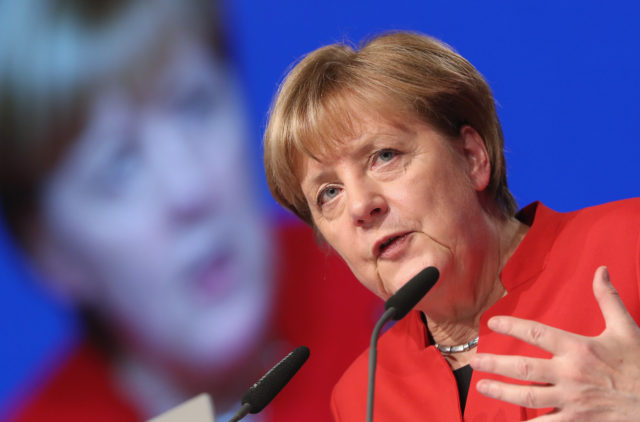
In light of the approaching national elections in 2017, Merkel’s support of the burqa ban is clearly an attempt to pacify the conservative populace of Germany.
What’s with 2016 and bans, anyway? All kinds of things are getting banned all across the globe (even though guns in America have eluded the trend so far). I don’t think governments should have the right to dictate what people can or cannot wear in public.
I might be wrong, but I was under the impression that government resources are better utilized in tackling issues like poverty, healthcare, and education, rather than wasting precious time on arguing whether wearing a scarf is appropriate or not!
Time to sort out our priorities, fellas.
Other Recommendations:
http://edtimes.in/2016/09/flipped-our-bloggers-fight-it-out-on-the-burkini-ban-in-france/
http://edtimes.in/2016/07/quoraed-what-do-indian-muslims-want-people-of-other-religions-to-know-about-them/


























